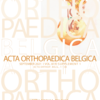Determinants of sucess in the treatment of prosthesic joint infection with debridement, antibiotics and implant retention
arthroplasty replacement hip ; arthroplasty replacement knee ; infection control ; prosthesis-related infections ; debridement
Published online: Oct 08 2021
Abstract
Debridement, antibiotics and implant retention (DAIR) is an appealing alternative for the treatment of periprosthetic infections. A retrospective clinical study that included all patients with prosthetic infection treated from January 2010 to December 2015 was made. Many variables were analyzed in- cluding the patient characteristics, infection charac- teristics and the type of medical and surgical treat- ment performed. Success was defined as the healing of the infection with the preservation of the original prosthesis. Fifty patients with a mean follow-up of 38.4 months (minimum 12 months) were studied. Global success rate was 46% (23/50).
The key determinants of treatment success were shorter duration of infection (21.4vs.73.1 days ; p=0.048), exchange of mobile components (87.0%vs.29.6% ; p<0.001, OR=15.8 [IC95%3.6-68.7]) and adequate “anti-biofilm” antibiotic therapy (78.2%vs.25.9% ; p<0.001 ; OR=10.3 [IC95% 2.8-38.2]). In the 20 cases where a pre-established protocol was strictly met the treatment success rate was 85% (17/20) versus the other cases where the protocol was not met and the success rate was 20% (6/30) (p<0.001 ; OR=22.7 [IC95% 5.0-103.5]). DAIR is an effective alternative for the treatment of periprosthetic infections if some conditions are met. The short duration of infection, strict surgical debridement with exchange of mobile parts and antibiotic therapy with “anti-biofilm” regimens are essential conditions for success.
